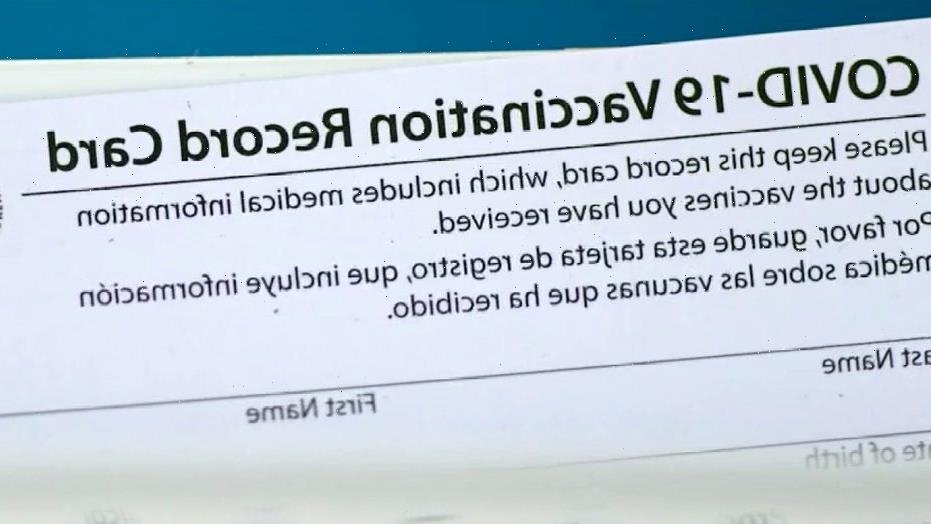From the strength and hope that consistently spring from Mj Rodriguez’s Blanca to the heartbreaking sacrifice of Billy Porter’s Pray Tell, the final season of FX’s “Pose” reaffirms its reputation as a groundbreaking series for LGBTQ representation.
From a cast made up largely of Black and Latina transgender women to a writers room that included a wealth of LGBTQ voices, “Pose” stuck its landing by following through with the ending envisioned by series co-creators Steven Canals, Brad Falchuk and Ryan Murphy from the start: the release of the drug cocktail that stopped HIV and AIDS from being a death sentence.
“‘Pose,’ for me, was always an investigation into the HIV/AIDS epidemic that impacted queer and trans-Black and brown people,” Canals says. “We just chose to tell that story through the lens of a bunch of young people who happened to be part of the ballroom community.”
In addition to reminding viewers of the impact of the AIDS crisis, Canals says “Pose” also rewrote the narrative around gay characters in television and film.
“I grew up in the ’80s and ’90s, and all of the queer narratives where HIV/AIDS was present in the story always ended with a death and there never was a celebration of life,” Canals says. “We obviously have that sacrifice and we see that loss in ‘Pose,’ but we also see Blanca and Ricky, who are both HIV-positive, at the end of the story living happy, healthy lives. One of the core essences of the show was to remind our audience of all of the life that’s still left to live.”
The final season also fulfills other goals and dreams the characters expressed in Season 1, which first aired in 2018, as Blanca advances in her career, Elektra (Dominique Jackson) solidifies her business empire, and Angel (Indya Moore) marries Lil Papi (Angel Bismark Curiel).
Executive producer Janet Mock says “Pose” was never intended to be a story only about the trauma faced by the trans community.
“We wanted to ensure that we show the everyday, mundane moments, as well as the great, grand celebrations,” she says. “The ballroom is a representation of what it means to congregate and share testimony and to love on each other. And our show is a celebration of the everyday intimacies. … We wanted to bring in traditions — wedding, matrimony — all this stuff that our characters get to engage in.”
Canals credits Mock with ensuring “Pose” leaned into joy.
“Having Janet come into the room as an icon in the LBGTQ+ community, it really pushed us in terms of the narrative choices that we were making,” he says. “So much of the narrative that you see in this final season came out of conversations with Janet, specifically, forcing Ryan, Brad and I, as three cisgender men, to consider the ways in which we were centering all of our beautiful Black and brown trans women on our series.”
This year, the series also delved deeper into the AIDS crisis with Pray Tell sacrificing himself by secretly giving his medication to his former lover, Ricky (Dyllón Burnside), after Ricky discovers a lesion.
Billy Porter, who won an Emmy® as outstanding lead actor in a drama series for “Pose” in 2019, says the parallels between AIDS and the COVID-19 pandemic make the series as relevant as ever.
“It’s very reminiscent of what it was like then,” says Porter, who, like his character is HIV-positive. “What ‘Pose’ really accomplishes this season is reminding the public that it’s when we come together and when we lead with love, [that’s] how we get to the other side.”
Porter says “Pose” allowed him to play a character he never thought would exist on American television.
“I spent the first 25-plus years of my career trying to fit into a masculinity construct that society placed on us so I could eat,” Porter says. “‘Pose,’ and Pray Tell in particular, really taught me to dream the impossible.”
Rodriguez has similar sentiments toward her character, Blanca, whose strength on screen, she says, will have an impact for trans women in real life.
“A lot of people out in the world are probably going to see what is possible when it comes to a trans woman taking a role and taking a lead,” she adds.
The final season aims to be uplifting as well as inspiring for trans and queer actors.
Mock hopes “Pose” viewers will remember and take to heart a line of dialogue Blanca and Elektra often say to one another.
“It’s a line that I’ve written over and over again into the scenes,” she says of the “centering and loving” quote that’s repeated throughout the series: “You are everything, and you deserve everything this world has to offer.”
As the series wraps, Canals is optimistic that “Pose” won’t just be a moment, but the beginning of a movement for equity and equality in the entertainment industry.
“I hope that the show will be an inspiration to all people, but specifically to young queer and trans people and to young folks of color, to use their voices unapologetically and to continue to speak out,” he says of his hope for fans to be inspired to tell their own stories. Canals adds that he wishes that the industry continues to invest in telling queer and trans narratives. “I think that it’s been long overdue,” he says. “Now is the time to invite queer and trans people to not just have a seat at the table, but to do what Ryan Murphy did for me, which is to provide the tools so that I can build my own table and invite people to sit at it.”
optional screen reader
Read More About:
Source: Read Full Article


